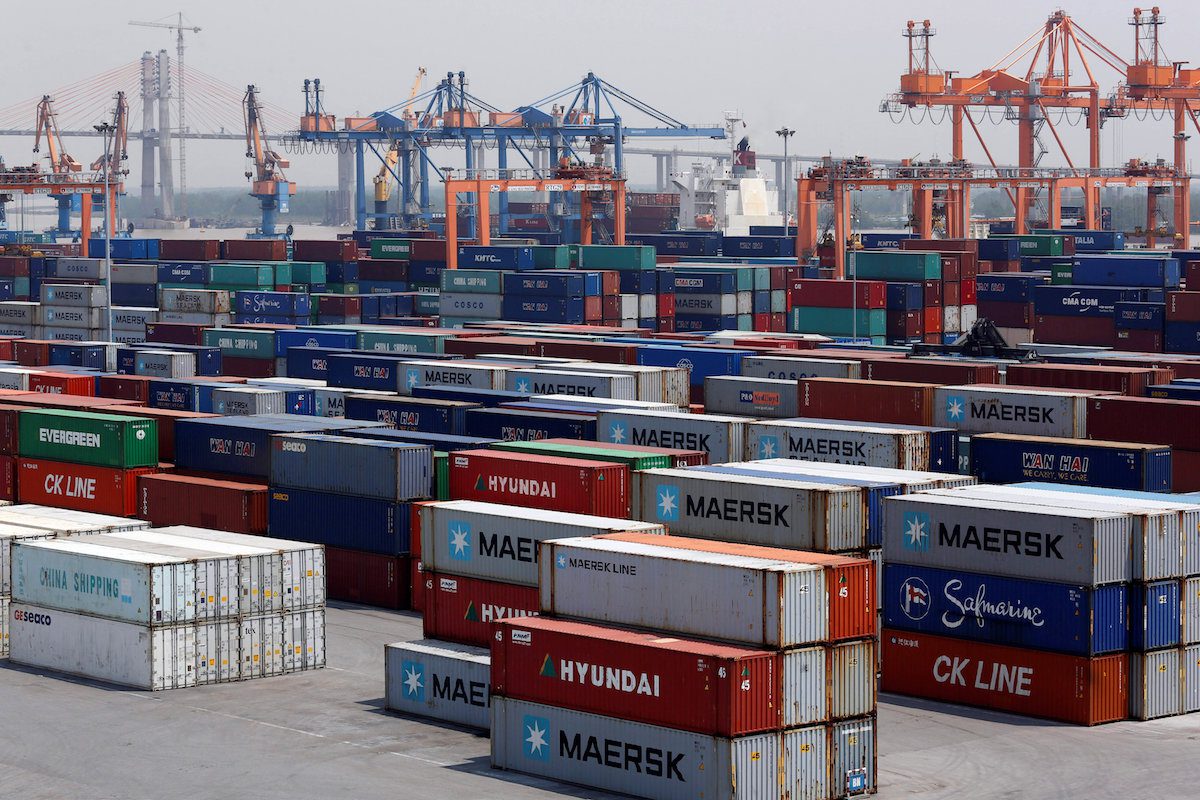The U.S. Department of Homeland approved a second Jones Act waiver late Thursday in response to the Colonial Pipeline shutdown, which has now been reopened.
“Today, Secretary Mayorkas approved a temporary and targeted Jones Act waiver request for a second company,” the DHS said in a statement. “This decision was made after careful consideration and consultation with interagency partners across the federal government as part of the whole-of-government response President Biden directed to address the impacts of the Colonial Pipeline shut down.”
The waiver follows a first waiver issued Wednesday to an individual company also on a “temporary and targeted” basis, allowing a foreign-flagged tanker to transport gas and jet fuel from the U.S. Gulf Coast to the eastern seaboard. That company has now been tipped as Valero.
Reporting now indicates the second waiver was issued to Citgo Petroleum. “Citgo is planing to use the waiver to ship approximately 200,000 barrels of jet fuel, gasoline and ultra low sulfur diesel from Lake Charles, Louisiana to Linden, New Jersey on a foreign flagged vessel, the two sources said,” according to a Reuters report.
With the Colonial Pipeline reopened since Wednesday evening, some are questioning the need for more waivers as fuel supplies along the eastern seaboard are in the process of being replenished after panicked drivers raced to the pumps to fill up their tanks (and in some cases plastic bags and Tupperware).
The Jones Act is the 1920 law requiring that goods shipped between U.S. ports be transported on ships that are not only U.S.-flagged, but aslo built, owned, and operated by United States citizens or permanent residents. It serves as the backbone of the nation’s domestic maritime industry and merchant marine.
While American maritime interests generally don’t not support Jones Act waivers in times of emergency when U.S.-flagged coastwise vessels are unavailable, recent waivers issued in response to 2017 hurricanes in the U.S. Gulf and Southeast and Puerto Rico went unused.
“The American Maritime Partnership does not object to a targeted approach to issuing waivers when there is a legitimate need and when such action does not reward those who would utilize foreign vessels to game the system at the expense of American jobs and national security,” said Mike Roberts, President of the American Maritime Partnership, in a statement on Wednesday before the first waiver was issued. The American Maritime Partnership advocates for American maritime interests and the Jones Act in Washington.
Earlier this week, the White House said the Biden Administration was ready to review Jones Act waiver requests from companies that can show insufficient domestic capacity. A Reuters report published Wednesday said efforts to get fuel supplies to areas facing shortages had been slowed because shipowners have mothballed Jones Act-compliant vessels due to market conditions.
While it seems American maritime interests were kept abreast of developments regarding at least the first waiver, unions and other stakeholders have stopped short of offering approval.
“American Maritime Officers and all other seagoing unions and maritime industry interests were kept current on the developing crisis in conference calls with the Maritime Administration in the Department of Transportation,” the American Maritime Officers (AMO) union revealed in an update to its members on Thursday, in reference to the first waiver. “In these calls, the participants were told in detail about efforts to determine how many Jones Act tankers and tug-barges were available to deliver the fuels.”
“The unacceptable alternative would be a blanket Jones Act waiver of indeterminate scope and duration,” the union added.
Addressing the nation on Thursday, President Biden said additional waivers were possible if necessary.
“As part of an effort to use every possible means to accelerate fuel deliveries, last night I granted a waiver of the Jones Act to fuel suppliers. This allows non-US flag vessels to transport refined fuel products from the Gulf of Mexico to affected areas, and we’ll grant additional waivers if necessary. These steps are temporary, but they remain in place until full-service is fully restored.”
“Colonial Pipeline can now report that we have restarted our entire pipeline system and that product delivery has commenced to all markets we serve,” Colonial Pipeline Company said in an update on Thursday afternoon.
“Following this restart, it will take several days for the product delivery supply chain to return to normal. Some markets served by Colonial Pipeline may experience, or continue to experience, intermittent service interruptions during this start-up period. Colonial will move as much gasoline, diesel, and jet fuel as is safely possible and will continue to do so until markets return to normal,” the update said.

 Join The Club
Join The Club











